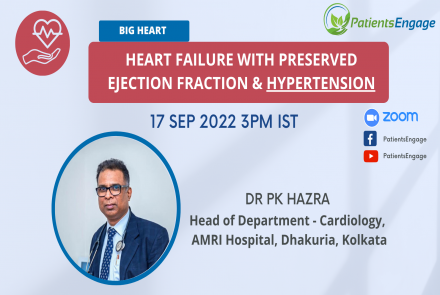Heart Failure is a commonly seen condition amongst our aging population. In spite of advanced therapeutic science, incidence rates continue to increase. Life expectancy of patients with Heart Failure can be improved with lifestyle changes and compliance with their treatment plan. Mumbai-based cardiologist, Dr Nihar Mehta explains Heart Failure comprehensively.

How is Heart Failure diagnosed?
Heart failure is a clinical diagnosis. The doctor will take into account the symptoms and risk factors and correlate those with clinical examination findings of heart rate, blood pressure, pressure wave forms of the venous pulse (JVP), chest and cardiac examination and examination of your abdomen and limbs.
If the diagnosis of heart failure is suspected, certain blood tests like BNP ( B-type Natriuretic Peptide), NT-ProBNP (N Terminal B-type Natriuretic Peptide) or ST-2 Levels can help to confirm the diagnosis. Other useful tests include cardiac enzymes, electrocardiogram, echocardiography, chest X-rays and other blood tests.
Changed
11/Dec/2021
Community
Condition














